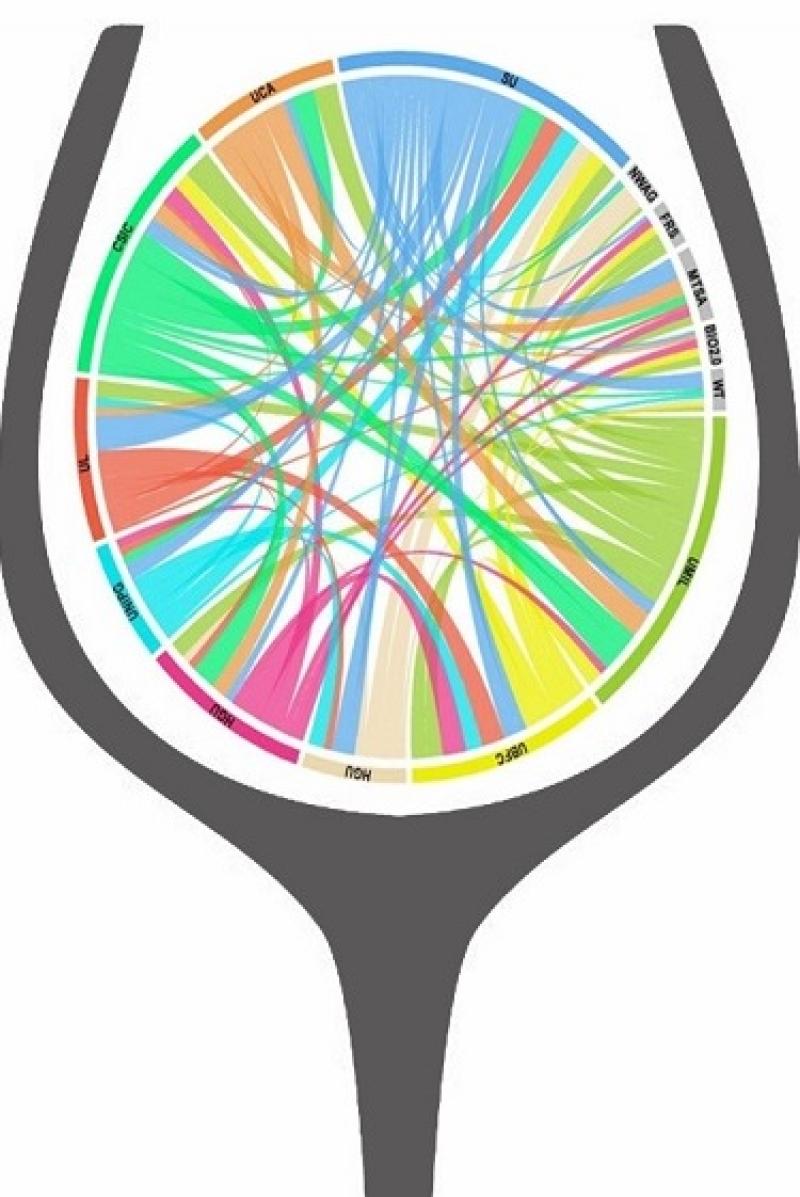The ICVV participates in the Eco2Wine project, a European Doctoral Network (HE/MSCA scheme) in which 10 three-year contracts are offered to carry out doctoral theses in various disciplines related to oenology and viticulture.
It is a great opportunity to achieve doctoral training in an interdisciplinary and international environment. All the contracts offered include periods of international mobility and the project itself will organise training events in different countries. The countries participating in the network are Spain, Italy, France, Germany, Slovenia, Georgia and South Africa. The Eco2Wine consortium is integrated by both academic and industrial partners.
To apply for one of these contracts it is necessary to be able to enrol in a doctoral programme, and not to have any previous doctoral degree. It is also essential to comply with the mobility rule; you must not have resided for more than 12 months in the three years immediately preceding the start of the contract in the country where you will enjoy the contract (with the exceptions provided for in the call). English is the working language of the project.
The full text of the call, with instructions and details on how to apply for each of the ten PhD projects, is published on the European Commission's EURAXESS platform: https://euraxess.ec.europa.eu/jobs/148836
Why should you be interested in doing your thesis within the Eco2Wine project?
In the ever-evolving world of wine, where tradition meets innovation, the scope of wine science extends far beyond growing grapes and making wine. It reaches deep into sustainability, the ever-expanding wine trade, and the sensory enjoyment of wine. Therefore, wine science is about much more than the wine in your glass. It is also about the environment, economics, health and society.
Picture the new frontier of wine science: In this scenario, we have decoded the DNA of microbes associated with grapevines and winemaking, yeasts have been tailor-made for the perfect wine, and we produce wine according to evidence from cutting-edge science. Consumers enjoy top-quality, eco-friendly wines.
However, the challenges are as vast as the vineyards themselves. Climate change looms large, public concerns about chemical inputs are mounting, and the sustainability of our natural resources hangs in the balance. Economic pressures demand increased competitiveness and internationalisation, while society cries out for authenticity, environmental responsibility, quality, and safety. To conquer these challenges, the wine industry must invest in frontier knowledge and high-level expertise by nurturing existing talent and fostering a new generation of wine science specialists.
Enter Eco2Wine: An innovative PhD program designed to push the boundaries of wine knowledge and innovation. Our mission is clear: We're here to explore the hidden world of microbial ecosystems associated with winemaking. These natural microbial communities are the unsung heroes of winemaking, and we're on a quest to unlock their secrets. We're not just growing grapes; we're fostering ecosystems. Our multidisciplinary approach blends environmental science, biotechnology, viticulture, microbiology, economics, social science and public engagement to create a new generation of wine innovators.
Why focus on microbes? Because they hold the key to sustainable and eco-friendly winemaking. Our passion is understanding the intricate dance between fungi, yeasts, and bacteria in vineyards and cellars. These microbial communities are the heartbeat of winemaking, and by deciphering their secrets, we're paving the way for a brighter, more sustainable future for the wine world.
Eco2Wine is a journey into the heart of wine science. The Eco2Wine network connects 21 organisations worldwide, all deeply engaged in the art and science of winemaking. Join us in this exciting wine science journey that will help to shape the future of wine.








